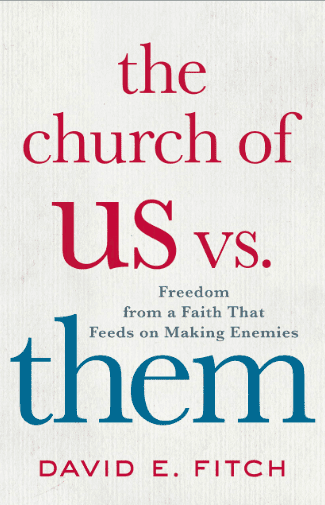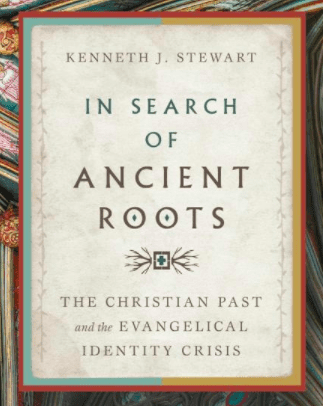 Carl Henry, in 1947 in his book The Uneasy Conscience of Modern Fundamentalism, called American evangelicalism out of its fundamentalist closet and into the public sector, and in so coming out evangelicalism was called by Henry to become intellectually responsible. That book generated “neo-evangelicalism” and re-generated much of American evangelicalism. Within two decades of Henry’s famous book many American evangelicals had become not just public but activist. David Swartz examines in his new and exceptional study, Moral Minority, the progressive, or left, side of this movement, and last week we looked at John Alexander, Jim Wallis, Mark Hatfield, and Sharon Gallagher.
Carl Henry, in 1947 in his book The Uneasy Conscience of Modern Fundamentalism, called American evangelicalism out of its fundamentalist closet and into the public sector, and in so coming out evangelicalism was called by Henry to become intellectually responsible. That book generated “neo-evangelicalism” and re-generated much of American evangelicalism. Within two decades of Henry’s famous book many American evangelicals had become not just public but activist. David Swartz examines in his new and exceptional study, Moral Minority, the progressive, or left, side of this movement, and last week we looked at John Alexander, Jim Wallis, Mark Hatfield, and Sharon Gallagher.
This book is an important effort, and it should be mandatory reading for any activist Christian.
Today we look at Phase 2 of the Moral Minority — Samuel Escobar, Rich Mouw, and Ron Sider. Swartz examines this trio of powerful voices, and the segment of the church each represented, as “contributions of people from non-American contexts previously on the margins of neo-evangelicalism” (113). Escobar represents Latin America, Mouw the Dutch Calvinists, and Sider the Anabaptists.
How would you describe the influence of these three voices: Escobar, Mouw, Sider? Of the seven voices discussed, can you think of others who perhaps deserve mention? Why do you think the voice of this group became the “minority” and not the “majority” voice? What’s your response to The Chicago Declaration?
The impact of these three voices to the previous four voices found a major moment in the famous Thanksgiving Workshop of 1973 leading to The Chicago Declaration.
1. Samuel Escobar: this was the most informative chapter of the study so far for me since it revealed that in the 1960s and 1970s Latin American evangelical theologians were protesting American evangelical colonialism and protesting American evangelicalism’s particular concerns with the liberation theology, and the former revealed classic imperialism at times while the latter revealed an insensitivity to hermeneutics and the need to ground theology in particular contexts. None was more of a leader here than Escobar, though Swartz sketches others, including Rene Padilla and Orlando Costas. In essence, American evangelicalism was also conservative American politics — and many in Latin America wanted no part of it. Escobar had plenty of opportunity to voice his concerns in the USA, and as with many, it was at Urbana that his voice became known. Progressive politics became more and more a part of the American evangelical scene.
2. Rich Mouw. Mouw’s story is told; his fundamentalist leanings parents and of his study at U of Chicago, his perception of the importance of politics and, following a spiritual experience a personal revolution leading to his developing a Christian voice and an activist stance, and then his robust commitment to a Reformed political voice, leaning as he has upon Abraham Kuyper and the the spheres of influence. Swartz sketched at length the radical Institute for Christian Studies. Mouw made a theological case for social action and justice as inherent to discipleship. His early study was called Political Evangelism. Mouw made the progressive voice more theological
3. Ron Sider (pictured). Sider emerged out of a quietist Brethren in Christ Canadian family; he caught fire intellectually and studied at an Ivy League school, Yale, where he studied under Jaroslav Pelikan; and Sider’s biggest influence was his radical call to evangelicals to become less consumerist, more aware of the impact of economy on the poor of this world, and the need to scale back. His powerful book is called Rich Christians in an Age of Hunger. Sider was also politically active and led a well-known movement to elect McGovern — a Democrat — over Nixon, at a time when major evangelical voices — Billy Graham, Harold John Ockenga — were vehemently critical of the Sider group and very supportive of Nixon. Swartz also brings in the famous More With Less Cookbook of those days.
These seven voices added up to the central voices of the Chicago Declaration, a document (below) that only came into print after very serious discussions, some of them that threatened whether the whole thing was going to break down… everything came to the surface: beside evangelicalism and its piety, there were pushes for feminism, anti-racism, materialism, and anti-war.
The Chicago Declaration 1973
As evangelical Christians committed to the Lord Jesus Christ and the full authority of the Word of God, we affirm that God lays total claim upon the lives of his people. We cannot, therefore, separate our lives from the situation in which God has placed us in the United States and the world.
We confess that we have not acknowledged the complete claim of God on our lives.
We acknowledge that God requires love. But we have not demonstrated the love of God to those suffering social abuses.
We acknowledge that God requires justice. But we have not proclaimed or demonstrated his justice to an unjust American society. Although the Lord calls us to defend the social and economic rights of the poor and oppressed, we have mostly remained silent. We deplore the historic involvement of the church in America with racism and the conspicuous responsibility of the evangelical community for perpetuating the personal attitudes and institutional structures that have divided the body of Christ along color lines. Further, we have failed to condemn the exploitation of racism at home and abroad by our economic system.
We affirm that God abounds in mercy and that he forgives all who repent and turn from their sins. So we call our fellow evangelical Christians to demonstrate repentance in a Christian discipleship that confronts the social and political injustice of our nation.
We must attack the materialism of our culture and the maldistribution of the nation’s wealth and services. We recognize that as a nation we play a crucial role in the imbalance and injustice of international trade and development. Before God and a billion hungry neighbors, we must rethink our values regarding our present standard of living and promote a more just acquisition and distribution of the world’s resources.
We acknowledge our Christian responsibilities of citizenship. Therefore, we must challenge the misplaced trust of the nation in economic and military might – a proud trust that promotes a national pathology of war and violence which victimizes our neighbors at home and abroad. We must resist the temptation to make the nation and its institutions objects of near-religious loyalty.
We acknowledge that we have encouraged men to prideful domination and women to irresponsible passivity. So we call both men and women to mutual submission and active discipleship.
We proclaim no new gospel, but the Gospel of our Lord Jesus Christ who, through the power of the Holy Spirit, frees people from sin so that they might praise God through works of righteousness.
By this declaration, we endorse no political ideology or party, but call our nation’s leaders and people to that righteousness which exalts a nation.
We make this declaration in the biblical hope that Christ is coming to consummate the Kingdom and we accept his claim on our total discipleship until he comes.











